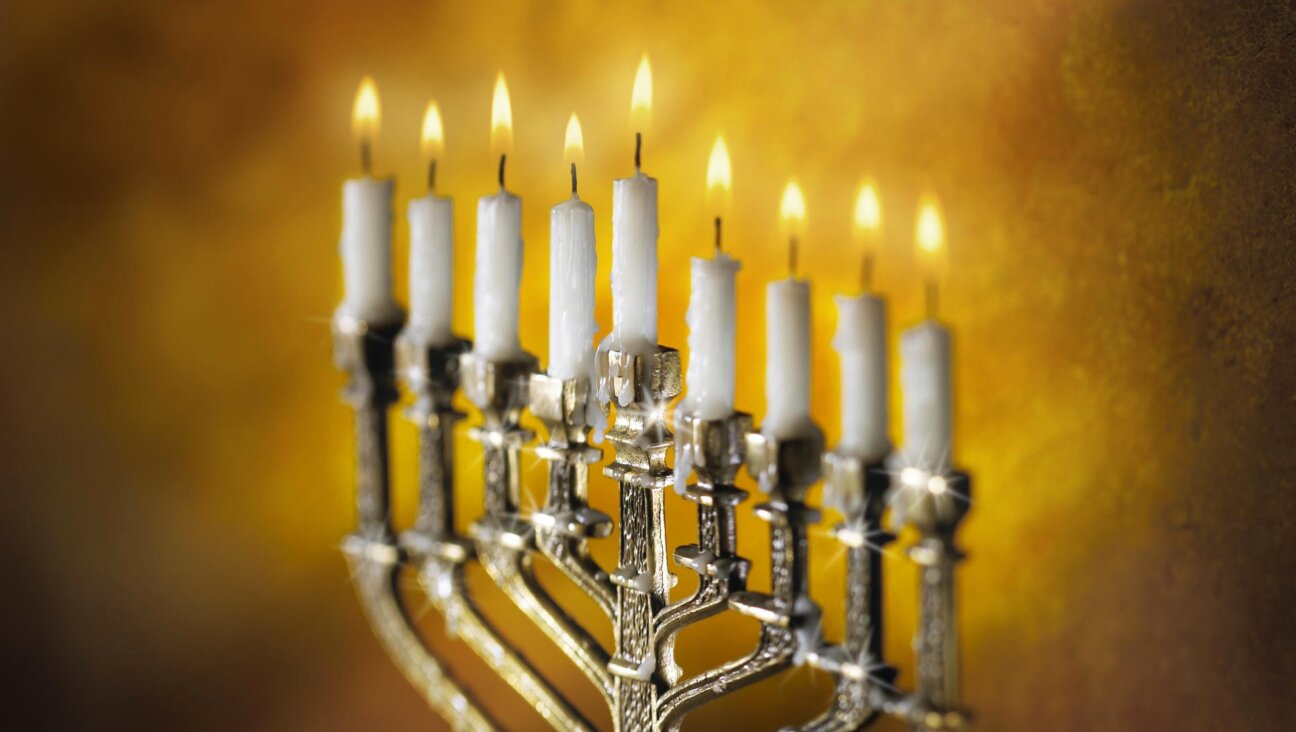Polish Mayor Skips Memorial for Jews Massacred by Neighbors

Jedwabne was not Belsen. Image by Forward Association
JEDWABNE, Poland (JTA) — Some 150 people attended a commemoration on the 75th anniversary of a massacre of hundreds of Polish Jews by their neighbors in the country’s northeast.
Jonathan Greenblatt, the CEO of the Anti-Defamation League, also attended Sunday’s ceremony in the town of Jedwabne, whose history is controversial in Poland because it involves complicity in the Holocaust by members of a nation that many perceive primarily as a victim of the German Nazi occupation.
Commemorating the victims in Jedwabne “grounds our work, which is to fight anti-Semitism, bigotry and racism,” Greenblatt said.
At Jedwabne, a few dozen perpetrators burned alive at least 340 Jews.
The mayor of Jedwabne did not attend the event, citing previous engagements. Nor did any of the townspeople, according to Henryk Zandek, 90, a non-Jewish man who lived in Jedwabne for years after World War II.
Ichak Lewin, an 85-year-old survivor who lives in Israel, sobbed when he recalled how the entire Jewish population of his village near Jedwabne was “taken to the barn and burned alive,” he said. Warned by locals, his family escaped the roundup in nearby woods, where a Polish family hid them. Lewin said he later worked in a German army kitchen.
Under Poland’s Communist governments, which blurred sectarian divides and at times displayed anti-Semitic tendencies, Jedwabne’s Holocaust-era record was little known until 15 years ago, Poland’s chief rabbi, Michael Schudrich, told JTA at the event.
In 2001, the publication of a book on Jedwabne by Princeton historian Jan Gross triggered a public debate on the issue.
In a nation where the Nazis killed 3 million non-Jewish Poles in addition to 3 million Jewish ones, “some found it, and some find it, difficult to accept the very bitter truth” about Jedwabne, Schudrich said. But since then, polls suggest that today approximately half of Poles have come to accept their compatriots’ role at Jedwabne, Schudrich said.
Polish Undersecretary of State Wojciech Kolarski represented Polish President Andrzej Duda at the event, where he laid a wreath at the monument for the victims.
“To be clear about what happened here: Polish citizens killed their own Polish compatriots of Jewish origin in a way that damaged a long tradition of living side-by-side,” Kolarski told JTA. “There can be no justification for that.”
At least 1,500 Jews died at the hands of Poles during the Holocaust or immediately after it, Schudrich said.
Some Polish politicians in the past denied that Poles killed Jews in Jedwabne, including former senator Jadwiga Stolarska, who in 2001 stated in Parliament that Germans were behind the killings and that “there was no way a Pole could kill a Jew.”
In 2011, Poland’s then-president, Bronislaw Komorowski, said of the centrist Civic Platform: “I beg forgiveness” for what happened at Jedwabne. In a nation of victims, he said, “there were perpetrators.”
Duda, the current president of the center-right Law and Justice party, last year attacked Komorowski’s statement in what some observers considered a step backward from acceptance of the role of Poles in the massacre at Jedwabne.
“I believe it is extremely important for us that we did not, as we are falsely accused by others, participate in the Holocaust,” Duda said at a televised debate last year. “The Lord knows that the Polish people did not take part in the Holocaust.”
Jonny Daniels, founder of the From the Depths commemoration group, said the event “shows us how seriously Polish society takes this matter,” citing Kolarski’s presence and that of the national media. Unlike some of its neighbors, he said, Poland is “standing up to its sometimes difficult past and not shirking from often painful truths.”
A message from our Publisher & CEO Rachel Fishman Feddersen

I hope you appreciated this article. Before you go, I’d like to ask you to please support the Forward’s award-winning, nonprofit journalism during this critical time.
We’ve set a goal to raise $260,000 by December 31. That’s an ambitious goal, but one that will give us the resources we need to invest in the high quality news, opinion, analysis and cultural coverage that isn’t available anywhere else.
If you feel inspired to make an impact, now is the time to give something back. Join us as a member at your most generous level.
— Rachel Fishman Feddersen, Publisher and CEO























